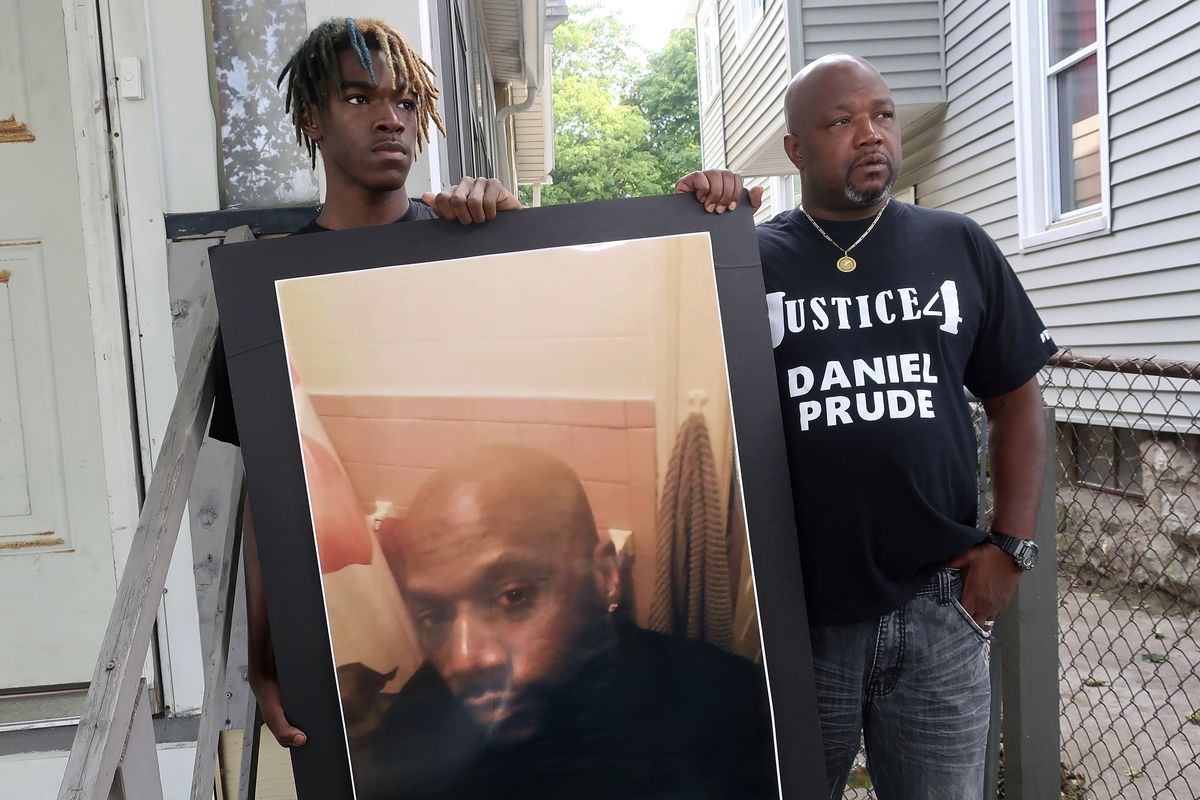No charges against officers involved in Daniel Prude’s death

Police officers shown on body camera video holding Daniel Prude down naked and handcuffed on a city street last winter until he stopped breathing will not face criminal charges, according to a grand jury decision announced Tuesday.
The 41-year-old Black man’s death last March sparked nightly protests in Rochester, New York, after the video was released nearly six months later, with demonstrators demanding a reckoning for police and city officials.
State Attorney General Letitia James, whose office took over the prosecution and impaneled a grand jury, said her office “presented the strongest case possible” and she was “extremely disappointed” by the decision.
“The criminal justice system has frustrated efforts to hold law enforcement officers accountable for the unjustified killing of African Americans. And what binds these cases is a tragic loss of life in circumstances in which the death could have been avoided,” James said at the Aenon Missionary Baptist Church in Rochester.
“One recognizes the influences of race, from the slave codes to Jim Crow to lynching to the war on crime to the overincarceration of people of color: Eric Garner, Tamir Rice, Breonna Taylor, George Floyd. And now Daniel Prude,” James later added.
Lawyers for the seven police officers suspended over Prude’s death have said the officers were strictly following their training that night, employing a restraining technique known as “segmenting.” They claimed Prude’s use of PCP, which caused irrational behavior, was “the root cause” of his death.
The video made public on Sept. 4 shows Prude handcuffed and naked with a spit hood over his head as an officer pushes his face against the ground, while another officer presses a knee to his back. The officers held him down for about two minutes until he stopped breathing. He was taken off life support a week later.
The county medical examiner listed the manner of death as homicide caused by “complications of asphyxia in the setting of physical restraint” and cited PCP as a contributing factor.
Prude’s family filed a federal lawsuit alleging the police department sought to cover up the true nature of his death.
Officers Troy Taladay, Paul Ricotta, Francisco Santiago, Andrew Specksgoor, Josiah Harris and Mark Vaughn, along with Sgt. Michael Magri, were suspended after Prude’s death became public.
Calls were made to the officers’ attorneys. Matthew Rich, who represents four officers, said “we’re still taking it in” and said the attorneys would speak to the press later.
“While I know that the Prude family, the Rochester community, and communities across the country will rightfully be devastated and disappointed, we have to respect this decision,” James said in a prepared release.
A message seeking comment on the decision was left for Prude family lawyer Elliot Shields.
Democratic Mayor Lovely Warren fired police chief La’Ron Singletary shortly after the video’s release, while rejecting calls from demonstrators that she resign. Singletary has said in legal papers that Warren told him to lie to support her assertion that she hadn’t learned of Prude’s death until months later, and fired him for his refusal to do so. A city spokesperson said his version of events confirms Warren never saw the video until August.
Warren announced a run for a third term in January and pleaded not guilty in October to an unrelated indictment alleging she broke campaign finance rules and committed fraud. The city’s public integrity office found no ethical lapses by the mayor in a narrow review of Prude’s death.
The city halted its investigation into Prude’s death when James’ office began its own investigation in April. Under New York law, deaths of unarmed people in police custody are typically turned over to the attorney general’s office, rather than handled by local officials.
James planned to meet with Prude’s brother, criminal justice advocates and faith leaders in Rochester to devise a plan to fight for a more just system.
“The voices of individuals of good will must be heard and they are marching and crying out for a criminal justice system that is fair and just,” James said Tuesday. “And so we must use boulders of righteousness, and hammers of intentional activism and mallets of moral clarity to bend the arc, the moral arc, towards justice and bring real equality in our time for all God’s people.”